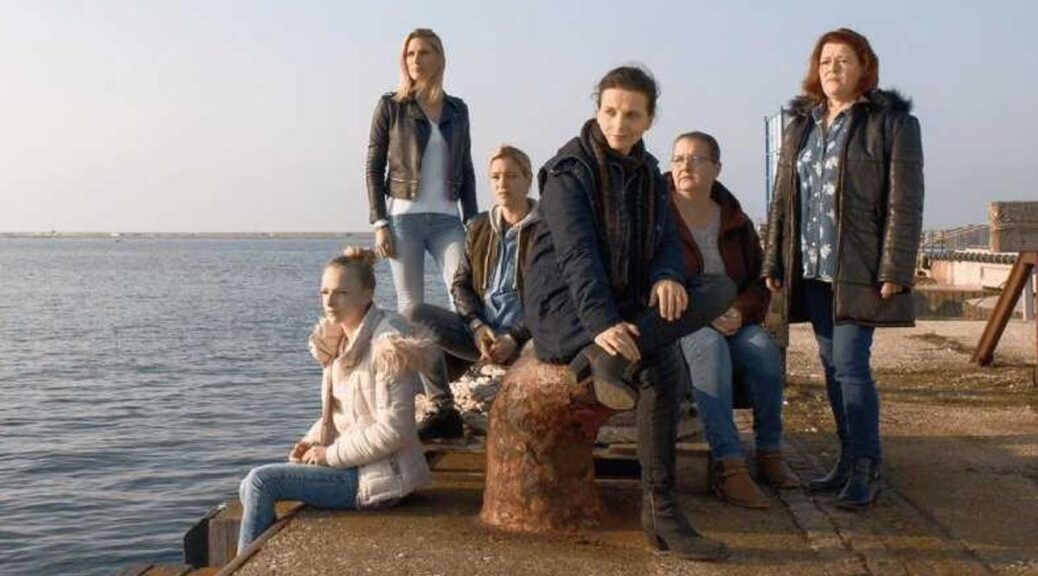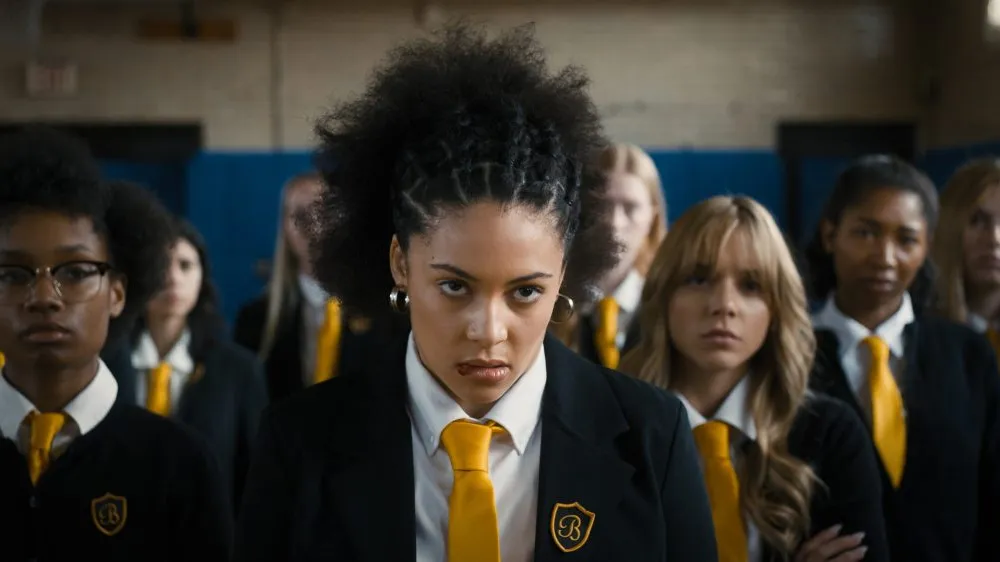Bottoms
by Hope Madden
Bottoms essentially follows a traditional teen comedy path, from the first day of senior year (with the high expectations of finally turning your popularity and romantic luck around) through that fraught homecoming football game. Our underdogs hatch a scheme to win the affections of the hot cheerleaders.
But if you saw co-writer/director Emma Seligman and co-writer/star Rachel Sennott’s uncomfortably brilliant 2020 comedy Shiva Baby, you have some idea of what you’re in for. Expect a chaotic, boundary pushing satire unafraid to offend.
PJ (Sennott) and Josie (Ayo Edebiri, so funny earlier this summer in Theater Camp) are their high school’s ugly, untalented gays. PJ is always scheming to get some cooch, and this will be their year. Her idea? Start a fight club for the girls in the school. Or, you know, a self-defense club. Where you wrestle around and hit and get excited and sweaty and close.
Josie is not down with this, but PJ usually gets her way and the next thing you know –well, you saw Fight Club, right? Because those men were only convincing themselves they were being pushed around, bullied and disempowered.
Part John Hughes, part Jennifer Reeder, part Chuck Palahniuk, Bottoms exists in a bizarre world of deadpan absurdism so littered with smart, biting commentary that you’ll need to see it twice to catch all of it.
Sennott and Edebiri are as fun a set of besties as Beanie Feldstein and Kaitlyn Dever in Booksmart. Maybe even as fun as Beanie Feldstein and Saiorse Ronan in Lady Bird. Nicholas Galitzine is a riot as the quarterback, Jeff, and Ruby Cruz delivers as the one earnest lesbian hoping to empower and create solidarity with this club.
Seligman’s tone, her image of high school and high school movies, is wildly, irreverently funny and fearless. It’s hilarious, raunchy, and so much fun.












